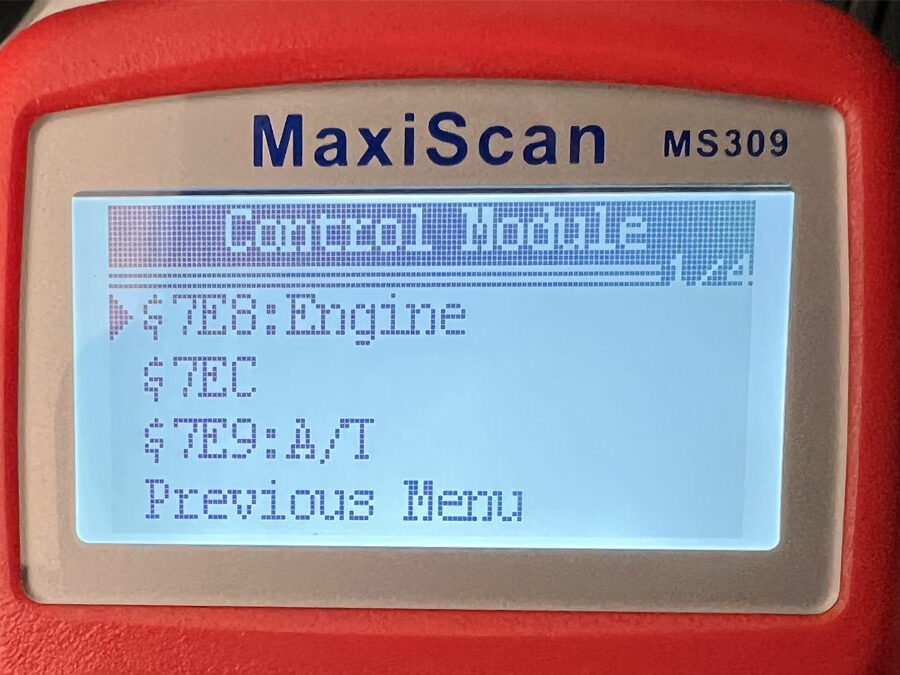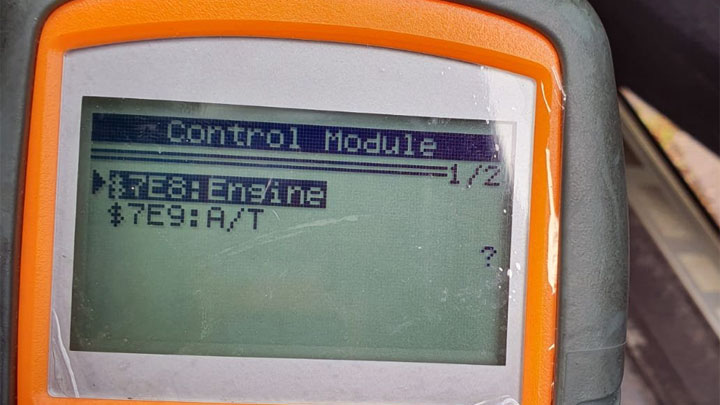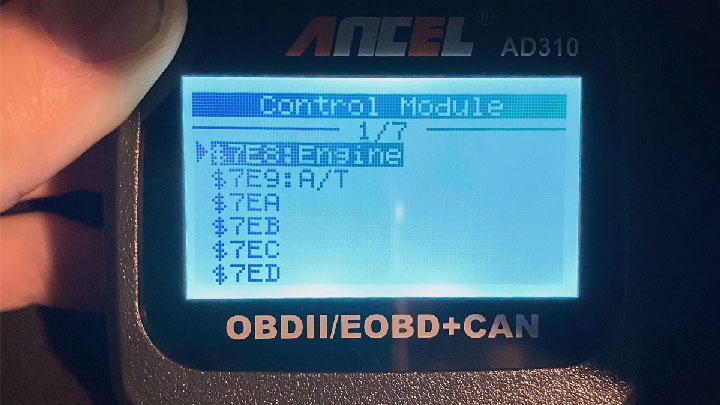$7E8 and $7E9 Engine Codes (What Do They Mean?)
Learning to correctly use an OBD II scanner takes time and experience. What appear to be codes $7E8 and $7E9 on scanners are actually not diagnostic fault codes but data subsets that require understanding to interpret.
This creates a certain amount of confusion among those that are new to scan tool use. Keep reading to learn about various menus and data subsets, such as $7E8 and $7E9, that you may encounter while using a scan tool.

What Do Codes $7E8 and $7E9 Mean?
In all truth, designations $7E8 and $7E9 are not what one would traditionally refer to as fault codes. These alphanumeric designations are actually nothing more than menu tabs for accessing data stored on various vehicle-mounted modules.
This is perhaps best illustrated by imagining $7E8 and $7E9 as addresses that actual fault codes will be pulled from, rather than fault codes themselves.
Most major vehicle manufacturers, including Ford, Chevy, Toyota, and BMW all use designations of this type to differentiate between various modules. While some scan tools automatically pull available data from all responding control modules, others require the selection of the pertinent designation that corresponds to the module that is to be communicated with.
Designation $7E8 generally corresponds to a vehicle’s engine control module, or ECM, while designation $7E9 relates to a vehicle’s transmission control module, or TCM.
Therefore, $7E8 would be the selection of choice when seeking out active engine fault codes, and $7E9 would be selected to source any recorded transmission DTCs.

Related: ECM vs PCM vs TCM
Common Trouble Codes Related to $7E8
As mentioned above, $7E8 is a designation used to describe a vehicle’s engine control module. Therefore, this menu will be selected when attempting to access engine related faults. The following are several faults most commonly stored by this module.
- P0300 – P0305: Cylinder misfire
- P0171 – P0175: O2 sensor faults
- P0128: Engine coolant temperature
- P0101: MAF sensor/circuit failure
- P0411, P0440, P0442, P0446, & P0455: EVAP-related faults
Common Trouble Codes Related to $7E9
As discussed above, $7E9 is a designation used to describe a vehicle’s transmission control module. With this in mind, you will select this menu when attempting to access transmission related faults. The following are several faults most commonly stored by this module.
- P0700: Transmission control system malfunction
- P0729 – P0736: Gear ratio fault
- P0740 – P0770: Shift solenoid failure
- P0706: Transmission range sensor performance
- P0218: Transmission over-temperature.
- U0101: Lost communication with TCM
What About $7EA, $7EB, $7EC, etc.?

$7EA, $7EB, $7EC, and all other similar alphanumeric designations presented by an OBD II scan tool also serve as data subsets for specific control modules. However, these designations ($7EX), which end with a letter rather than a number, are intended to signify a particular channel of the identified controller that can be monitored.
This has little practical value, as those hoping to retrieve trouble codes from a specific module will want to select every monitored channel for that particular module. This will ensure that every stored diagnostic fault code for this module is retrieved.
Can These Codes Be Fixed?
Because of the fact that menu designations such as $7E9, $7E8, and $7EA are not actual fault codes, but rather data subsets, they cannot be cleared. Think of these alphanumeric designations as addresses, at which actual fault codes can be accessed and viewed.
When selecting these designations, you are simply stating that you would like to pull data from those particular addresses or modules.
- P0480 Code (Symptoms, Causes, and How to Fix) - Apr 19, 2024
- Car Temperature Gauge Stopped Working? (Here’s Why) - Apr 15, 2024
- Ignition Coil vs Coil Pack (What’s the Difference?) - Apr 8, 2024
